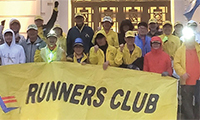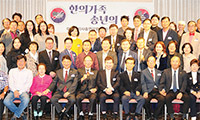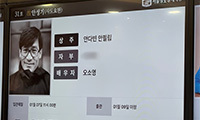Tom Kartsotis, the wealthy co-founder of Fossil, has no connection to the Motor City. He lives in Dallas, where he now oversees a handful of ventures he’s invested in. In early 2011, he decided to build a small watch factory that would sell high-quality watches that were priced, as he puts it, “at the entry point of luxury.”
He also wanted to make these watches in America. “So many big companies have sourcing infrastructures whose knee-jerk reaction is to head to China,” he said. He couldn’t compete with China at the low end of the market — nobody can. But he felt that the kind of watches he had in mind — priced between $450 and $600 at the low end, with a distinctive but classic design — could be made competitively in the United States. So he decided to put his new factory here in Detroit, a city once renowned for its manufacturing prowess that, in recent times, has needed all the help it can get.
That original idea turned into a company called Shinola. It has eight retail outlets and employs around 375 people, most of them in Detroit. Although those stylized watches are its biggest sellers — the company expects to sell between 150,000 and 180,000 this year — it also designs and makes bicycles, leather goods and other well-crafted, high-end products. Not only are those products built in Detroit, but Shinola also tries to buy the parts it needs from other American companies. Its leather, for instance, comes from the Horween Leather Company, a Chicago tannery more than a century old. Its bicycle frames are shipped from a company run by a fourth-generation Schwinn.
Although it was a philanthropic impulse that moved Kartsotis to set up shop in Detroit, it has turned out to be a very good business decision. The space Shinola needed to build its factory was cheap. There was also plenty of talent — engineers, for sure, but also former auto assembly-line workers, people eager to work who Shinola could train to be watchmakers. When I visited the watch factory recently, I saw rows of employees bent over their desks, focusing intently as they placed tiny, intricate parts inside the unassembled watches.
Indeed, to spend any time in Detroit these days is to be amazed at the extent to which it is humming with entrepreneurial activity. Dan Gilbert, the founder and chairman of Quicken Loans — which he relocated to Detroit — has bought more than 70 buildings and is converting some of them into office space for small businesses. There are other buildings with common work spaces and tools like 3-D printers than can be shared. The city’s government and, especially, its foundations are focused on helping people who want to start a new business. I spoke with a woman named Julie James, who, with her four sisters, manufactures a brand of juices they call Drought. It employs 32 people. Another company, The Floyd Leg, makes handsome, colorful legs for furniture; its work force is seven people. New companies like these are starting every day.
Kartsotis told me that “creating a few hundred jobs isn’t going to move the needle.” He’s right about that, of course. But, collectively, all these small companies do seem to be helping to bring Detroit back. Young people are moving in to the downtown and midtown areas. The unemployment rate is dropping. Once-abandoned buildings are being reoccupied. There are retail stores and restaurants that didn’t exist even a few years ago. Something very good is happening here, and it’s largely the result of private-sector activity. Kartsotis isn’t the only entrepreneur whose desire to come to the aid of a once-great city has turned out to be a smart business move.
If it seems clear that companies like Shinola are the way forward for Detroit, it is not so clear whether they are also the way forward for American manufacturing more generally. “I’m proud of what this company stands for,” Jacques Panis, Shinola’s president, told me. When I asked him just what that is, he replied: “High-quality manufacturing jobs for America.”
Shinola’s products are well-designed and made. They are selling briskly. But they are not cheap, and they’ll never be mass produced. I’ve written before about how even big manufacturers like Caterpillar and General Electric employ far fewer workers than they used to thanks to automation. Shinola offers a different twist on that idea. It’s not automation that is restricting the number of workers but rather the niche appeal of its products. I’m not sure its example is particularly replicable.
As for Shinola, Kartsotis is readying its next product: Shinola-style headphones that can compete with high-end models like those from Beats. He told me that he has just completed a round of financing and hopes to take the company public one day.
Which will be good for him — and Detroit.
스마터리빙
more [ 건강]
[ 건강]이제 혈관 건강도 챙기자!
[현대해운]우리 눈에 보이지 않기 때문에 혈관 건강을 챙기는 것은 결코 쉽지 않은데요. 여러분은 혈관 건강을 유지하기 위해 어떤 노력을 하시나요?
 [ 건강]
[ 건강]내 몸이 건강해지는 과일궁합
 [ 라이프]
[ 라이프]벌레야 물럿거라! 천연 해충제 만들기
 [ 건강]
[ 건강]혈압 낮추는데 좋은 식품
[현대해운]혈관 건강은 주로 노화가 진행되면서 지켜야 할 문제라고 인식되어 왔습니다. 최근 생활 패턴과 식생활의 변화로 혈관의 노화 진행이 빨라지고
사람·사람들
more
LA 러너스클럽 새해맞이 등반 행사
LA 러너스클럽(회장 대니얼 임)은 지난 1일 새해맞이 그리피스팍 등반 행사를 가졌다. 이날 회원 30여 명은 쏟아지는 비 속에서도 그리피스팍…

미주한의사총연 송년행사
미주한의사총연합회(회장 조본환·이사장 서영수) 송년회가 지난달 14일 LA 옥스포드 팔레스 호텔에서 열렸다. 이날 행사에서는 프란시스코 김 캘…
[인터뷰-문경환 한인회장] “캔자스, 이민자들에 … 1
“캔자스시티는 삶의 속도와 기회의 균형이 잘 맞는 도시입니다. 제2의 인생을 시작하기에 더없이 좋은 곳이죠.”29일 본보를 방문한 문경환(61…
일사회 창립 14주년 기념식 및 송년행사
전·현직 민주평통자문위원들의 모임인 일사회(회장 박철웅)는 지난 16일 용수산에서 창립 14주년 기념식 및 송년회를 개최했다. 이날 행사에는 …
LA평통 통일전략분과 상견례
LA 평통(회장 장병우) 통일전략분과(위원장 이정현)는 지난 27일 형제갈비에서 상견례 겸 간담회를 개최했다. 이날 모임에서는 위원 간 교류를…
많이 본 기사
- 마두로 축출에 갈라진 지구촌… “국제법 위반” vs “환영”
- 조용필 한달음에..故 안성기 빈소, 박중훈→이정재 조문 행렬
- ‘대상’ 이상민 잘나가니 발끈..’성범죄자’ 고영욱→ ‘도박’ 신정환, 번갈아가며 저격
- [마두로 체포 막전막후] ‘델타포스’ 침투 5분만에 전광석화 체포… 은신처 대피 못해
- 박지성♥김민지, 새해 근황..훌쩍 큰 딸·아들 공개
- BTS 정국, ‘접근금지’ 요청했지만..브라질女 집 찾아가 난동 ‘검거’
- 캘리포니아 ‘직장 내 권리 알림법’ 시행 돌입
- 정보석, 故이순재 이어 故안성기까지.. “또 한 분의 큰 스승 편히 가세요”
- 가주 DMV 리얼 ID 발급 ‘전산 오류’
- 트럼프, 베네수엘라 전격 군사작전… 마두로 ‘축출’
- 마두로 전격 체포 뒤엔 ‘스텔스 드론·밀정’ 있었다
- 연방 항소법원 “총기 공개적 휴대 금지 가주법 위헌”
- [이민법 칼럼] 시민권 박탈
- [신년 집중기획/2026 새해 이렇게 바뀐다] 이민 제도 5대 변화… 영주권자까지도 입국시 안면인식 생체정보 수집
- LAX 또 항공편 대거 취소·지연 사태
- 가주, 개인정보 보호법 ‘초강수’
- 메디케이드 정보 이민국 공유 ‘허용’
- 루비오 국무, ‘베네수엘라 총독’ 되나
- 입국 제한 확대… 추가 20개국 이민 신청 전면 중단
- “트럼프 폭주… 달러 패권 흔들”
- 한인타운 인근 상가서 묻지마 총격 2명 사상
- 급조된 노력으론 명문대 힘들어… ‘새해부터 준비할 일’
- 재정보조만으로 부족한 대학 학비… 장학금 신청으로 해결
- Crinks 세력이 크게 꺾이는 그런 해가…
- 시간이 머무는 곳
- 백화점 ‘삭스피프스’… ‘챕터11’ 보호신청 검토
- 하늘길 막은 ‘불청객’… 인천공항 운항 피해 5년새 107건
- ‘국민 배우’ 안성기 별세 혈액암 투병, 향년 74세
- 셀트리온, 미 뉴저지 생산시설 인수… CDMO 영토 넓힌다
- 지표 보면 경제 알 수 있다… 경기 향방 가늠 10대 지표
- “올해도 미 성장 지속… S&P 500 두 자릿수↑”
- ‘브라운 50점’ 보스턴, 클리퍼스 꺾고 3연승
- “미, 상호관세 부과 능력 계속 유지해야”
- 역대 최고령 45세 윌리엄스 호주오픈 여단식 본선 출전
- 30년 모기지, 최저치 6.15%로 지난해 마감
- 뉴욕증시, 새해 첫 거래 혼조세 마감
- 오픈AI, 직원 주식보상도 ‘역대급’
- [만화경] 집권 2년 차 징크스
- 일본프로야구 홈런왕 오카모토 토론토와 4년 6천만달러 계약
- 국회·세종 청사·항만 노출… ‘안티드론’ 구축률 10%도 안 돼
- 60년 만 ‘투자 귀재’ 없는 첫 주
- 황희찬 ‘PK 1골+1도움’… 울버햄프턴, 개막 20경기 만에 첫 승
- LA 총영사관 시무식… “민원 서비스 강화”
- “올해 도약 원년”… 토종 AI유니콘, 글로벌 시장 정조준
- Art Major -Beyond the Canvas
- AI 시대에 제안하는 학부모님들을 위한 새해 결심
- 소비자들 지갑 열까?… 올해 소비 전망 대체로 ‘양호’
- [데이빗 이그나티우스 칼럼] 신년맞이 퀴즈: 2026년에는 좋은 일이 있을까?
- 보류는 끝이 아닌 ‘다시 뛰기 위한 준비시간’
- “재정보조금이 대학의 NPC결과와 차이가 나는 이유”
1/5지식톡

-
 미 육군 사관학교 West Poin…
0
미 육군 사관학교 West Poin…
0https://youtu.be/SxD8cEhNV6Q연락처:wpkapca@gmail.comJohn Choi: 714-716-6414West Point 합격증을 받으셨나요?미 육군사관학교 West Point 학부모 모…
-
 ☝️해외에서도 가능한 한국어 선생님…
0
☝️해외에서도 가능한 한국어 선생님…
0이 영상 하나면 충분합니다!♥️상담신청문의♥️☝️ 문의 폭주로 '선착순 상담'만 진행합니다.☎️ : 02-6213-9094✨카카오톡ID : @GOODEDU77 (@골뱅이 꼭 붙여주셔야합니다…
-
 테슬라 자동차 시트커버 장착
0
테슬라 자동차 시트커버 장착
0테슬라 시트커버, 사놓고 아직 못 씌우셨죠?장착이 생각보다 쉽지 않습니다.20년 경력 전문가에게 맡기세요 — 깔끔하고 딱 맞게 장착해드립니다!장착비용:앞좌석: $40뒷좌석: $60앞·뒷좌석 …
-
 식당용 부탄가스
0
식당용 부탄가스
0식당용 부탄가스 홀세일 합니다 로스앤젤레스 다운타운 픽업 가능 안녕 하세요?강아지 & 고양이 모든 애완동물 / 반려동물 식품 & 모든 애완동물/반려동물 관련 제품들 전문적으로 홀세일/취급하는 회사 입니다 100% …
-
 ACSL 국제 컴퓨터 과학 대회, …
0
ACSL 국제 컴퓨터 과학 대회, …
0웹사이트 : www.eduspot.co.kr 카카오톡 상담하기 : https://pf.kakao.com/_BEQWxb블로그 : https://blog.naver.com/eduspotmain안녕하세요, 에듀스팟입니다…
케이타운 1번가
오피니언

Crinks 세력이 크게 꺾이는 그런 해가…
 윤경환 서울경제 뉴욕 특파원
윤경환 서울경제 뉴욕 특파원 60년 만 ‘투자 귀재’ 없는 첫 주
 데이빗 이그나티우스 워싱턴포스트 칼럼니스트
데이빗 이그나티우스 워싱턴포스트 칼럼니스트 [데이빗 이그나티우스 칼럼] 신년맞이 퀴즈: 2026년에는 좋은 일이 있을까?
 조옥규 수필가
조옥규 수필가 시간이 머무는 곳
 홍병문 / 서울경제 논설위원
홍병문 / 서울경제 논설위원 [만화경] 집권 2년 차 징크스
 손영아 문화 칼럼니스트 / YASMA7 대표
손영아 문화 칼럼니스트 / YASMA7 대표 [손영아의 문화산책] ‘슈만의 연가’… 170년 전 멈춘 시간, 끝나지 않은 사랑
 김재천 서강대 국제대학원 교수
김재천 서강대 국제대학원 교수 [김재천 칼럼] 2026년, 미·중 대타협은 가능할까
 조지 F·윌 워싱턴포스트 칼럼니스트
조지 F·윌 워싱턴포스트 칼럼니스트 [조지 F. 윌 칼럼] AI 투자 붐이 걱정된다면?… 역사적 맥락을 보라
 이희숙 시인·수필가
이희숙 시인·수필가 [금요단상] 차가운 길, 이불 한 장의 온기
1/3지사별 뉴스

뉴욕시 첫 무슬림 시장 맘다니 취임
미국 최대도시이자 경제 수도로 꼽히는 뉴욕시의 첫 무슬림·남아시아계 시장이자 스스로를 민주사회주의자라고 부르는 조란 맘다니 신임 뉴욕시장이 새…
뉴욕시민 기대수명 82.6세⋯팬데믹 이전 회복

건국 250주년 워싱턴 모뉴먼트 라잇쇼
워싱턴 DC 내셔널 몰 중심에 위치한 워싱턴 모뉴먼트(Washington Monument)가 화려한 불빛으로 장식됐다. 지난 31일 새해 카운…
“소확행<작지만 확실한 행복> 즐겨요”

[美 마두로 축출] 트럼프 “베네수엘라 부통령이 잘하면 미군 주둔 안해”
도널드 트럼프 대통령은 베네수엘라 측이 미국이 바라는 대로 행동하는 한 미군이 베네수엘라에 주둔하지 않을 것이라고 말했다고 뉴욕포스트가 3일 …
중부 캘리포니아 ‘한인 이민사’ 나왔다



















































.png)


댓글 안에 당신의 성숙함도 담아 주세요.
'오늘의 한마디'는 기사에 대하여 자신의 생각을 말하고 남의 생각을 들으며 서로 다양한 의견을 나누는 공간입니다. 그러나 간혹 불건전한 내용을 올리시는 분들이 계셔서 건전한 인터넷문화 정착을 위해 아래와 같은 운영원칙을 적용합니다.
자체 모니터링을 통해 아래에 해당하는 내용이 포함된 댓글이 발견되면 예고없이 삭제 조치를 하겠습니다.
불건전한 댓글을 올리거나, 이름에 비속어 및 상대방의 불쾌감을 주는 단어를 사용, 유명인 또는 특정 일반인을 사칭하는 경우 이용에 대한 차단 제재를 받을 수 있습니다. 차단될 경우, 일주일간 댓글을 달수 없게 됩니다.
명예훼손, 개인정보 유출, 욕설 등 법률에 위반되는 댓글은 관계 법령에 의거 민형사상 처벌을 받을 수 있으니 이용에 주의를 부탁드립니다.
Close
x